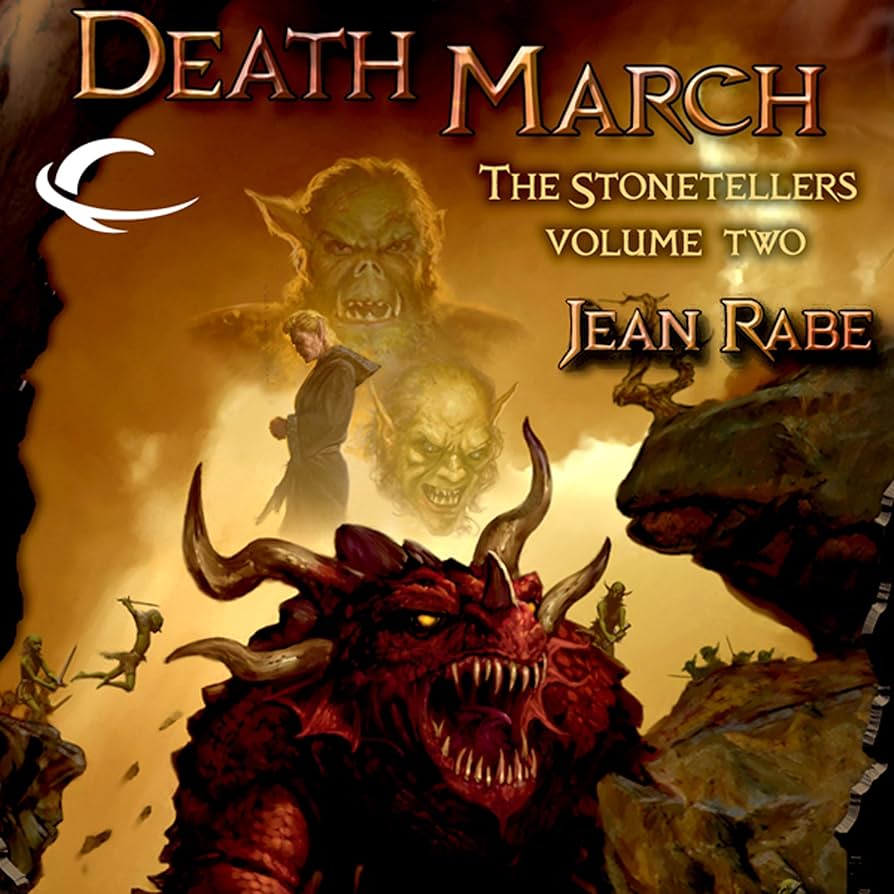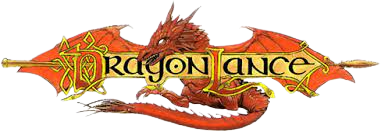Death March

Table of Contents
ToggleOverview
Death March, written by Jean Rabe, is the first book in the Age of Mortals subseries within the Dragonlance saga. Set after the War of Souls, the novel explores a world still reeling from divine absence and mortal upheaval. It focuses on a ragtag band of prisoners conscripted into a brutal march across Krynn—through haunted ruins, cursed lands, and shattered faith.
The novel is gritty and unflinching, focusing on survival, reluctant camaraderie, and the moral toll of war in a world where the gods are silent, but death still speaks loudly.
Main Character: Dhamon Grimwulf
Once a hero who helped defeat Chaos, Dhamon is now a bitter, broken man living in the shadow of his past.
Haunted by former glories and personal failures, he is conscripted into a penal unit and forced into a desperate journey.
His arc is one of reluctant leadership, internal reckoning, and gradual rediscovery of purpose.
Supporting Characters
Rikali – A streetwise thief with sharp wit and survival instincts. She serves as both foil and unexpected ally to Dhamon.
Kirsig – A grizzled, no-nonsense commander overseeing the march. He personifies order without compassion.
Kender Companion – Adds unexpected heart and humor, contrasting the grim tone and forcing others to reconsider their own cynicism.
Other Prisoners – A cross-section of Krynn’s broken people: deserters, thieves, mystics, and misfits, each with their own stories and grudges.
Setting
The march traverses central Ansalon: burned-out cities, desolate fields, haunted battlefields, and godless temples.
Krynn feels hollow, scarred by war and divine abandonment. The world is one of shifting allegiances and constant threat—from both within and without.
The terrain itself becomes a character, filled with traps, curses, and echoes of divine silence.
Plot Summary
Dhamon, imprisoned and demoralized, is assigned to a penal company sent on a forced march across Krynn. Their task: clear cursed lands, recover lost relics, and survive where regular soldiers dare not go.
The march is filled with ambushes, internal strife, and supernatural threats. As the company dwindles, Dhamon is thrust into reluctant leadership, using both sword and strategy to keep his comrades alive.
Amid battle and betrayal, Dhamon confronts visions of his former heroism—and the despair of knowing what he’s lost.
By journey’s end, though battered and still bitter, Dhamon begins to see a path toward redemption—not through grand victories, but through endurance and small acts of mercy.
Themes
Redemption in Despair – Dhamon’s journey shows that even fallen heroes can rise again—not to glory, but to decency.
The Cost of Survival – The novel probes what people are willing to sacrifice for one more day.
Faith After the Fall – With the gods absent, characters wrestle with moral choices in a vacuum of divine guidance.
Brotherhood in Suffering – The penal unit forms bonds forged in hardship, where trust is hard-earned but vital.
Tone & Style
Death March is dark, introspective, and survival-focused. It trades high fantasy for war realism, psychological tension, and grim atmosphere.
The prose is sharp, direct, and emotionally raw, immersing readers in the exhaustion, paranoia, and fleeting hope of its characters.
Reception
The novel is praised for:
A gritty, realistic tone that adds depth to Dragonlance.
Dhamon’s compelling fall-and-rise arc.
Showing a post-War of Souls world from a ground-level view.
Some critiques:
Less magic and fewer epic fantasy elements than typical Dragonlance entries.
Heavy tone may not suit readers looking for traditional heroic fantasy.
Final Thoughts
Death March is a hard-edged, emotionally resonant entry in the Dragonlance series. It explores what it means to live when hope is lost, and how sometimes the truest heroism lies in continuing to walk when every step hurts.
Recommended for:
Readers of military fantasy and character-driven drama.
Fans of flawed heroes seeking redemption.
Those curious about the moral complexity of post-god Krynn.
